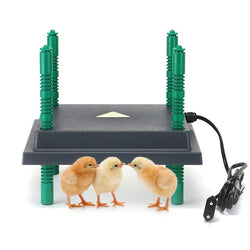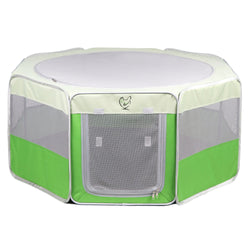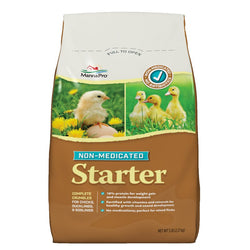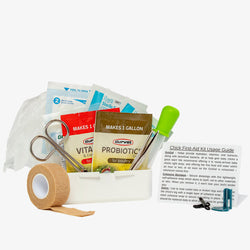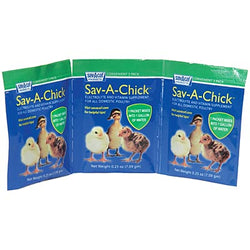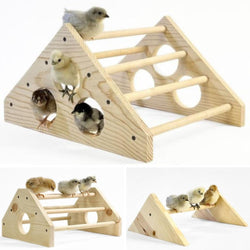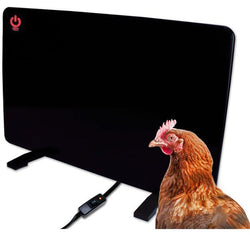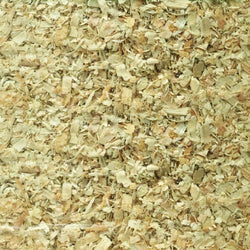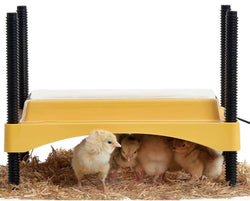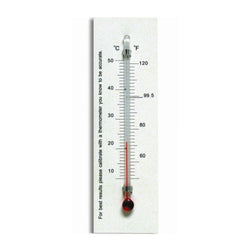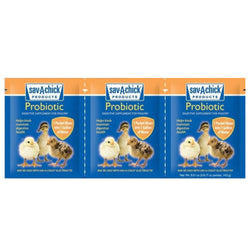All about Mycotoxicosis disease
Back to blog
When feed gets wet, it can grow mold or other fungi that can produce toxins that are dangerous or even deadly for chickens. When a bird ingests those toxins, the result can be Mycotoxicosis, which can produce varied symptoms among your flock. The simplest preventative? Keep your feed dry. Read on to find out more information:
Mycotoxicosis Also called
Aflatoxicosis, Aflatoxicosis, Ergotism, Fusariotoxicosis, Oosporein Mycotoxicosis, other mycotoxicoses (consumption of toxins produced by fungi)
Prevalence
Sporadic
Signs
General signs -
Various, depending on the type of toxins ingested, but often watery droppings, egg quality issues, lesions, slowed growth or weight loss. Occasional partial paralysis or ataxis.
Cardinal or diagnostic signs -
Feed analyasis. However, mold can be localized in parts of feed rather than spread out evenly throughout the feed.
Cause/s
Toxins produced by molds or other fungi growing on grains or feed, including Penicillium, Aspergillis, Chaetomium, Claviceps, Fusarium, etc.
Communicability
Not communicable bird to bird, but often whole flocks will be affected at once if they're all consuming the same feed.
Communicability to humans
Not from birds, but occasionally if you are also eating infected or moldy food. Transmission via eggs is rare but does happen.
Incubation period
No, as this is not properly an infection. Onset can be gradual if small amounts of toxins are present, or acute with large amounts.
Latent
No.
Endemic
Yes. These fungi occur throughout the world.
Home treatment and/or prevention
Prevention: Buy good quality feed that has been stored properly. Store your feed in cool, dry areas. Don't place feeders in places where feed can be rained on, get wet, or be exposed to moisture. Use caution when allowing chickens to access a compost pile, as some foodstuffs may get moldy before properly composted. Don't locate feed beneath watering nipples or near windows where rain can blow in. Keep coop roof in good repair.
Treatment: Replace moldy feed with fresh feed.
Veterinary treatment
Your veterinarian may recommend antibiotics to help ward off illness while your sick bird recovers. S/he may also prescribe activated charcoal and/or vitamin supplements.
Recovery
Varies, depending on type of mycotoxicosis and how much of the toxin was consumed.
Other conditions, illnesses and/or diseases with similar signs:
Can be mistaken for other illnesses or conditions with digestive symptoms such as coccidiosis, and some types of salmonellosis such as typhoid and paratyphoid.
Also consider browsing through this list of other chicken illnesses with neurological symptoms.
Mycotoxicosis Also called
Aflatoxicosis, Aflatoxicosis, Ergotism, Fusariotoxicosis, Oosporein Mycotoxicosis, other mycotoxicoses (consumption of toxins produced by fungi)
Prevalence
Sporadic
Signs
General signs -
Various, depending on the type of toxins ingested, but often watery droppings, egg quality issues, lesions, slowed growth or weight loss. Occasional partial paralysis or ataxis.
Cardinal or diagnostic signs -
Feed analyasis. However, mold can be localized in parts of feed rather than spread out evenly throughout the feed.
Cause/s
Toxins produced by molds or other fungi growing on grains or feed, including Penicillium, Aspergillis, Chaetomium, Claviceps, Fusarium, etc.
Communicability
Not communicable bird to bird, but often whole flocks will be affected at once if they're all consuming the same feed.
Communicability to humans
Not from birds, but occasionally if you are also eating infected or moldy food. Transmission via eggs is rare but does happen.
Incubation period
No, as this is not properly an infection. Onset can be gradual if small amounts of toxins are present, or acute with large amounts.
Latent
No.
Endemic
Yes. These fungi occur throughout the world.
Home treatment and/or prevention
Prevention: Buy good quality feed that has been stored properly. Store your feed in cool, dry areas. Don't place feeders in places where feed can be rained on, get wet, or be exposed to moisture. Use caution when allowing chickens to access a compost pile, as some foodstuffs may get moldy before properly composted. Don't locate feed beneath watering nipples or near windows where rain can blow in. Keep coop roof in good repair.
Treatment: Replace moldy feed with fresh feed.
Veterinary treatment
Your veterinarian may recommend antibiotics to help ward off illness while your sick bird recovers. S/he may also prescribe activated charcoal and/or vitamin supplements.
Recovery
Varies, depending on type of mycotoxicosis and how much of the toxin was consumed.
Other conditions, illnesses and/or diseases with similar signs:
Can be mistaken for other illnesses or conditions with digestive symptoms such as coccidiosis, and some types of salmonellosis such as typhoid and paratyphoid.
Also consider browsing through this list of other chicken illnesses with neurological symptoms.
